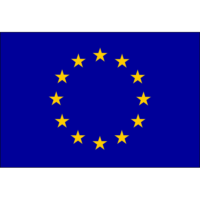A subtle tug in corporate earnings has nudged major European shares off their well-worn paths, offering a glimpse of shifting undercurrents just as trade tensions loom and policy signals waver.
Against a backdrop of modest weekly moves across the continent’s key indices, a handful of standout surprises has drawn fresh scrutiny from long-term allocators. As investors sift through second-quarter reports, unexpected gains in defence and industrials have contrasted sharply with cautionary notes from household names in appliances and pharmaceuticals, hinting at an emerging divergence in risk-reward perceptions.
Throughout the past two sessions the STOXX Europe 600 has tread water, yet beneath that calm surface a handful of companies have taken centre stage. Defence contractor Saab leapt by more than 10 per cent after posting stronger-than-forecast operating income and lifting its near-term sales outlook, underscoring burgeoning demand for security-related hardware across NATO members. Its rally underscored how strategic spending shifts can outweigh broader market inertia. Equally striking was the rebound in Vestas Wind Systems, which rose over 12 per cent following a high-profile upgrade, reminding investors that the green-energy complex still harbours pockets of conviction despite recent volatility.
By contrast, Electrolux’s shares slumped in excess of 13 per cent after the appliance group warned of subdued demand in North America and maintained a cautious view across other regions, underscoring that consumer capex remains uneven. GlaxoSmithKline found itself under pressure as a key drug application was rebuffed by a U.S. regulatory panel, prompting a near-6 per cent fall and reinforcing the persistent risks that pipeline setbacks can pose to valuation.
Elsewhere, smaller upbeat surprises peppered the broader index. SKF, the roller-bearing specialist, and medical-technology provider Getinge both surpassed consensus forecasts, each adding more than 5 per cent to their share prices. Their results exemplified how niche industrial players can still deliver robust order books as supply-chain pressures ease. Meanwhile, Reckitt Benckiser edged higher after agreeing to divest its essential-home unit in a $4.8 billion deal, reflecting growing appetite for streamlined portfolios among consumer-goods incumbents.
These company-specific moves unfolded amid a broader sector rotation. The oil and gas cohort posted some of the strongest gains on the STOXX 600, buoyed by a rise in crude prices following fresh EU sanctions on Russian exports. That uptick illustrated how geopolitical developments can swiftly re-price commodity-linked equities. Industrials likewise featured among the better performers, as investors gravitated towards firms seen as beneficiaries of potentially looser monetary policy further down the line.
Yet trade anxieties persist. U.S. threats of additional tariffs on European goods, though still capped at 10 per cent, have injected a note of caution, especially for export-oriented heavyweights. Despite truce-like rhetoric in recent brokerage updates, investors remain sensitive to any re-emergence of protectionist skirmishes. Concurrently, a new friendship treaty between Britain and Germany has generated talk of deeper bilateral cooperation, adding another layer of nuance to regional dynamics.
Taken together, these developments have reinforced a broader theme: in markets where headline moves appear muted, discerning investors are finding fresh entry points by homing in on sector-specific and company-specific catalysts. The interplay between earnings surprise potential, policy signals and geopolitical shifts is creating a subtle yet discernible map for navigating Europe’s equity landscape.
Fidelity European Trust PLC (LON:FEV) aims to be the cornerstone long-term investment of choice for those seeking European exposure across market cycles.





































